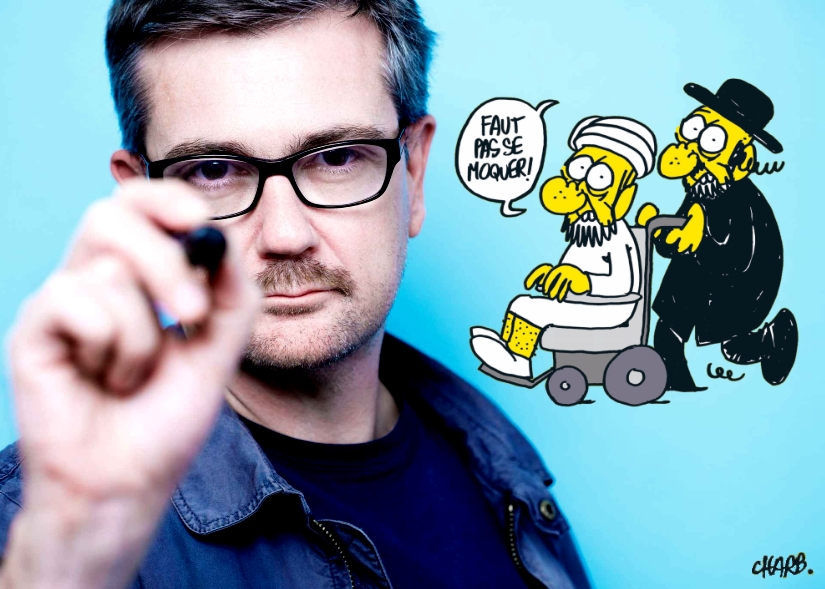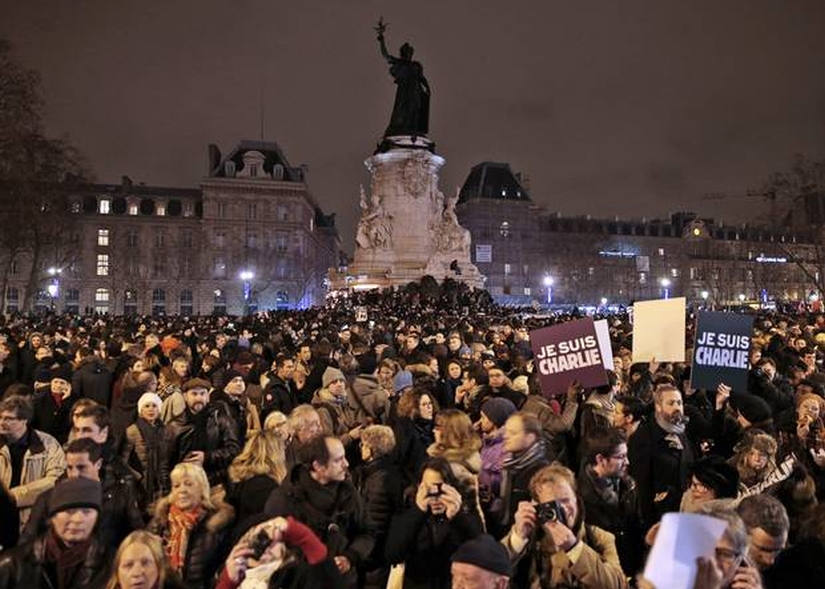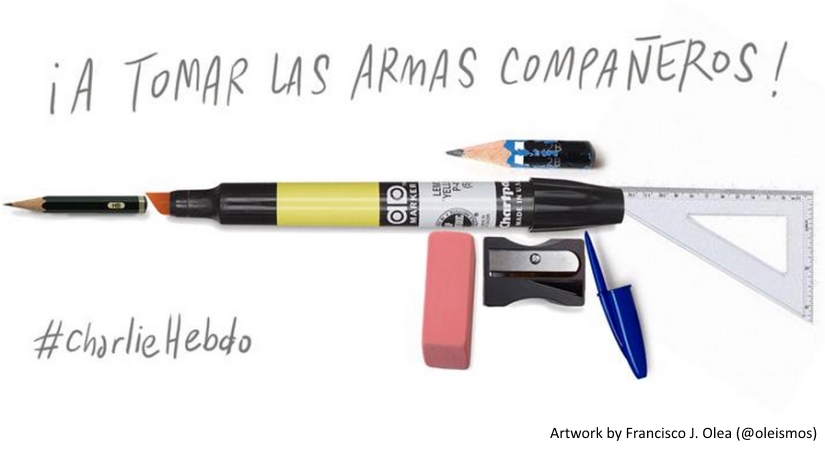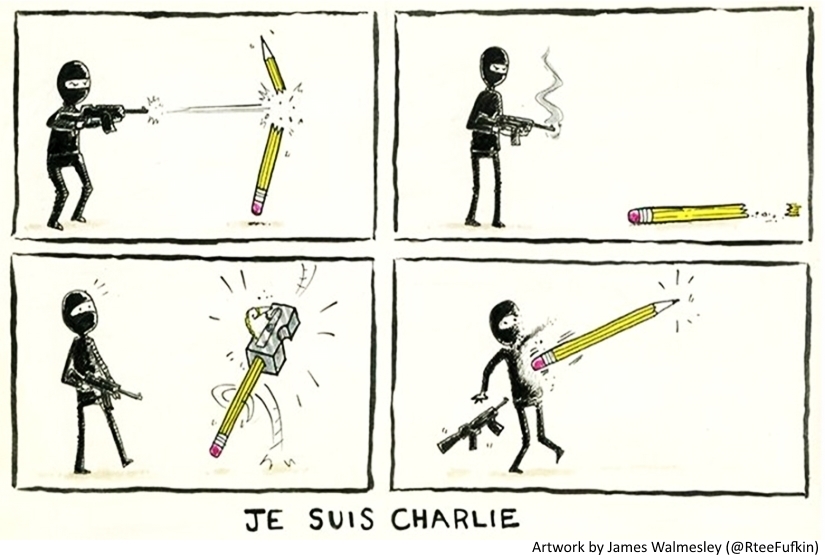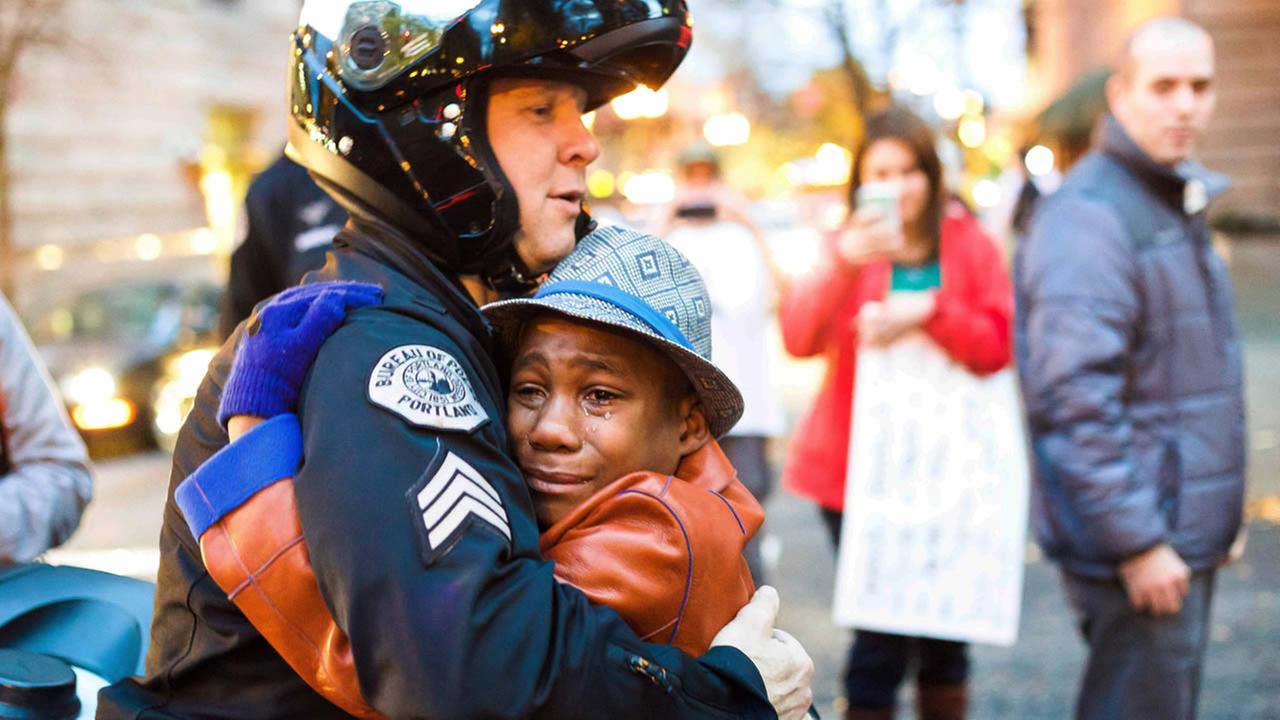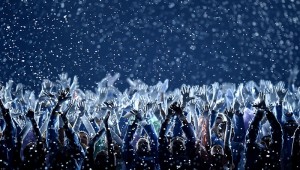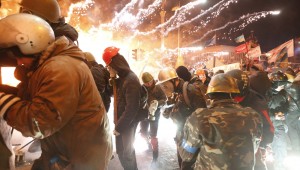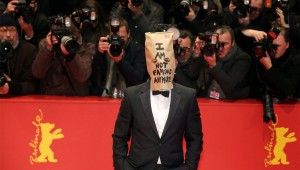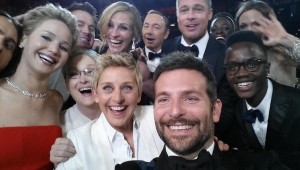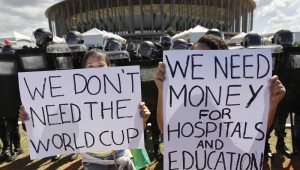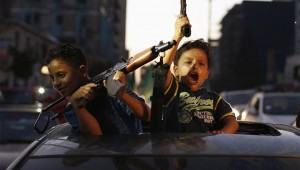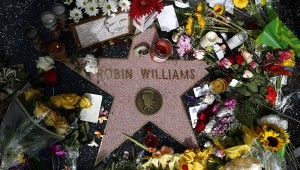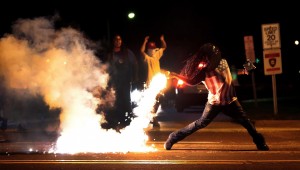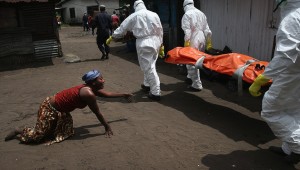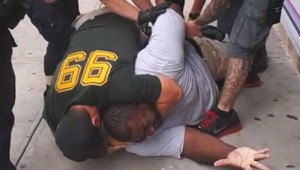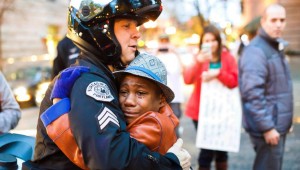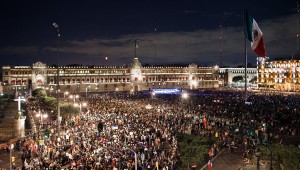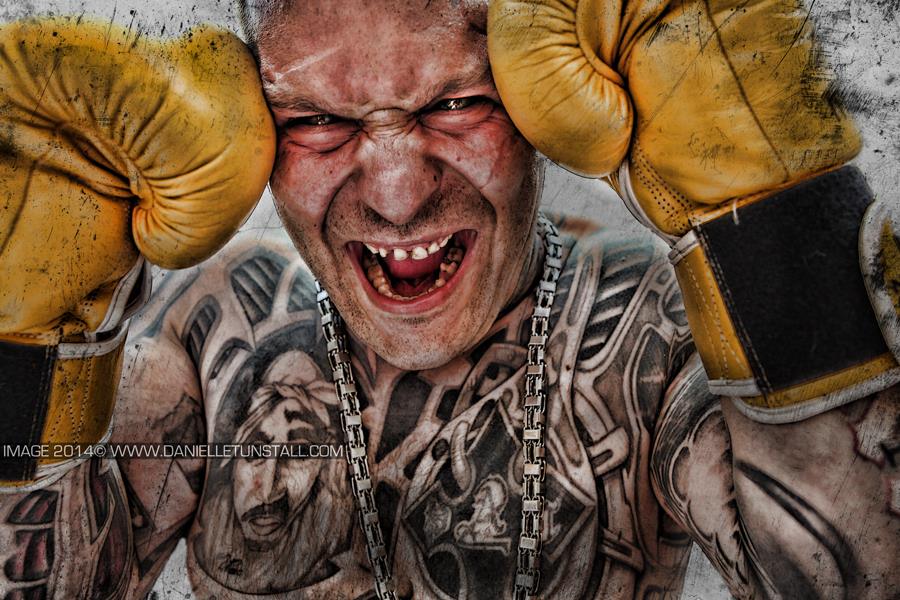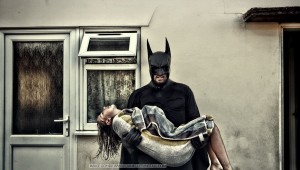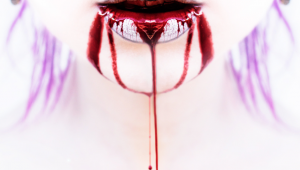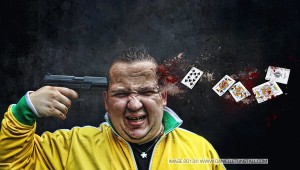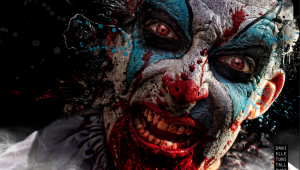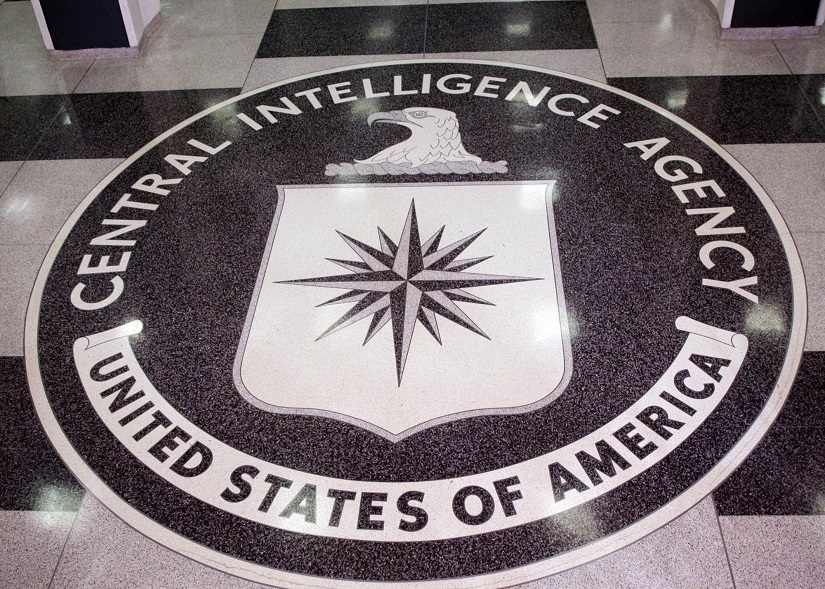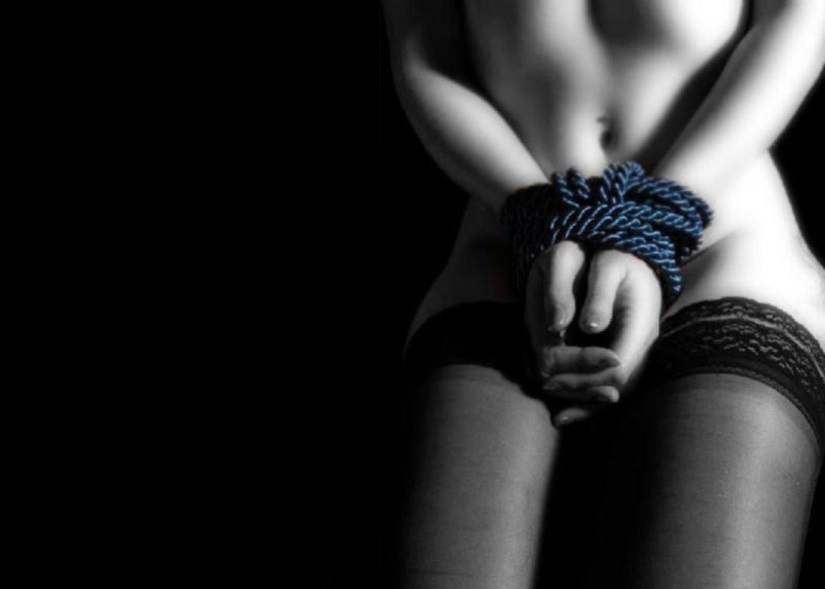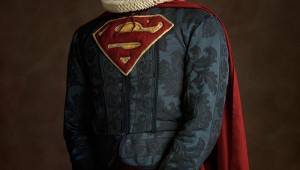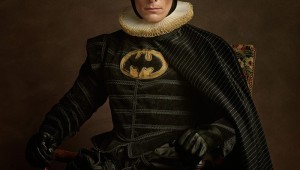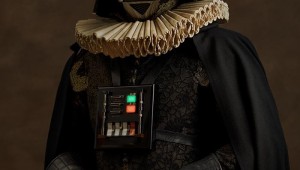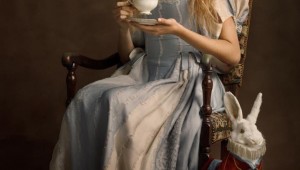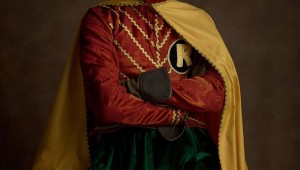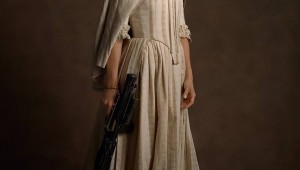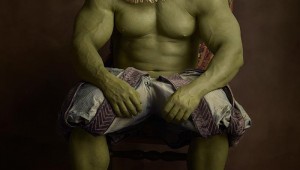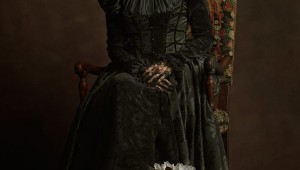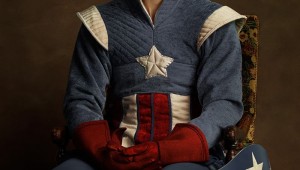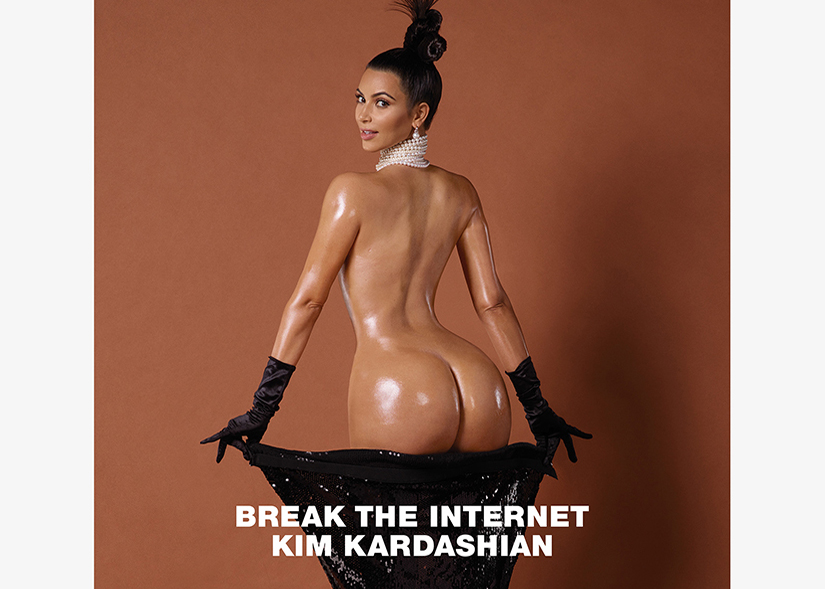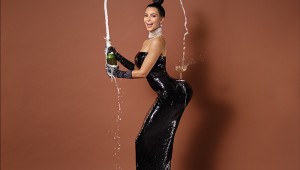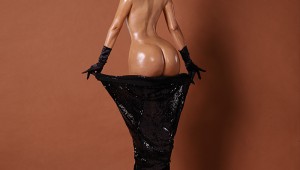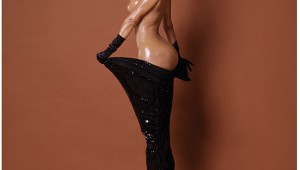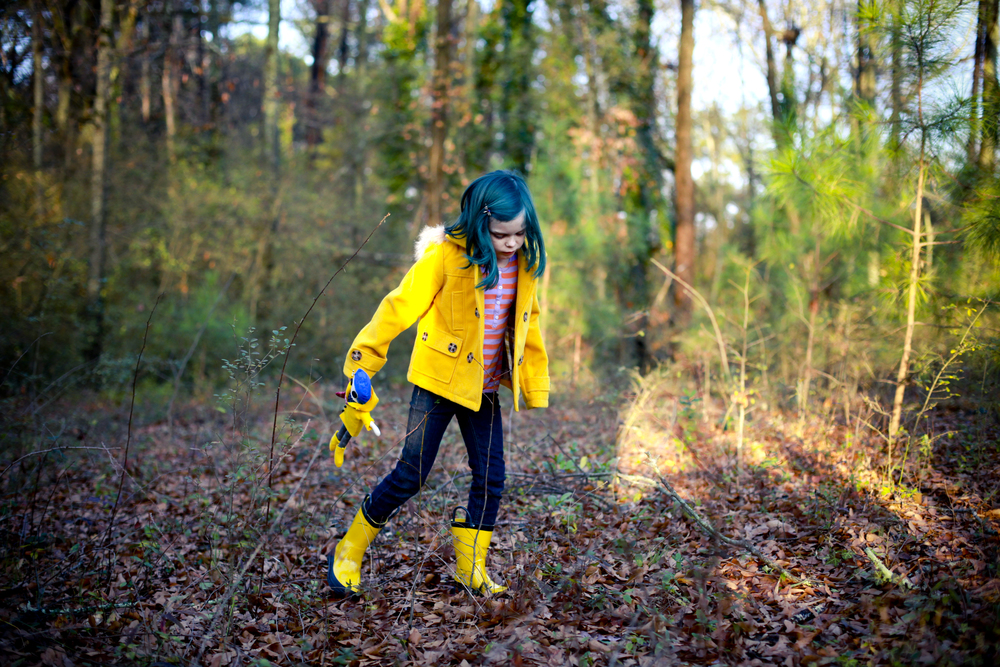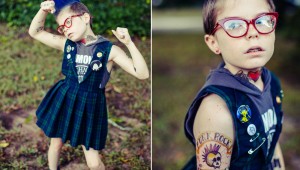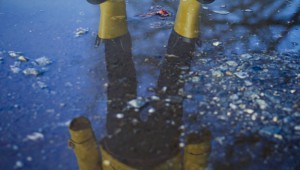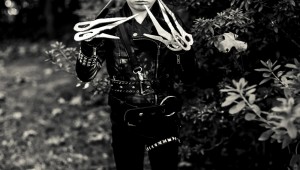Nous Sommes Charlie Hebdo: Terrorism's Losing Battle Against Satire and Artistic Expression
Yesterday, France experienced its worst terrorist attack in more than five decades. At least two gunmen, brothers Said and Cherif Kouachi, entered the Paris headquarters of the weekly magazine Charlie Hebdo armed with assault rifles. The terrorists killed 12 people, including Charlie Hebdo editor and lead cartoonist Stéphane "Charb" Charbonnier, several other members of the staff, and two police officers. As of this writing, both of the Kouachis remain at large, though a third suspect, Hamyd Mourad, reportedly turned himself in to French authorities last night.
The attack was prompted by Charlie Hebdo's anarchic satire—a particularly cheeky "nothing's sacred" approach the French call "gouaille"—which mocked the Prophet Muhammad as well as pretty much everyone else. Weeks after the September 11 attacks, the cover of Charlie Hebdo featured Osama bin Laden saying, "No hands," as in a kid on a bike shouting, "Look, Mom: No hands!" Another cover featured Pope Benedict XVI sneakily instructing a pedophile bishop to get into the movie business to keep safe just like Roman Polanski. This brand of satire led to a 2011 firebombing of the Charlie Hebdo offices. As Arthur Goldhammer wrote yesterday in Al Jazeera America, "The whole point of Charlie's satire was to be tasteless and obscene, to respect no proprieties, to make its point by being untameable and incorrigible and therefore unpublishable anywhere else."
Yet symbolically, Charlie Hebdo has come to mean more than what it was. In a sign of solidarity, many in mourning across the world have taken up the slogan "Je Suis Charlie" ("I am Charlie"; this article's headline "Nous Sommes Charlie" means "We Are Charlie"). Because of the audacity of the attack, the terrorists haven't destroyed Charlie Hebdo. Instead they have given a financially shaky magazine with a weekly circulation of 50,000 all the eyes of the world.
Fundamentalism and extremism of various stripes tends to involve a lack of self-awareness and a lack of self-reflection, though mostly fundamentalists and extremists lack a sense of humor. Anyone who takes themselves or their ideology so seriously that they resort to murder or threat of violence after feeling offended is, frankly, an asshole.
I'm not saying that I'm an arbiter of what people should or should not be offended by—your right to be offended is wholly your own—but what I am saying is that there are better and more constructive ways to express your feelings than harming others or threatening to harm others, and if you harm others or threaten to harm others simply because you are offended, you are an asshole. This goes for the people who carried out these attacks, the hackers at Guardians of Peace trying to stop the release of The Interview, the belligerent Gamer Gaters who put commentators and developers in their crosshairs, the person or people who bombed the NAACP office in Colorado Springs, the man who murdered Theo van Gogh, and so on. It takes a special kind of ignorance and cowardice to justify one's violent intentions using religion, country, or some other ideology.
The Charlie Hebdo gunmen reportedly screamed that Muhammad had been avenged after their act of murder, as if Muhammad had nothing better to do than read a French weekly magazine.
Assholes.
What these attacks and threats of violence ultimately do is set back the ideology that carried them out by creating a solid opposition against said ideology. It's the sociopolitical version the Streisand effect, in an odd way. In rallies throughout Europe and in posts online, there are "Je Suis Charlie" signs and #charliehebdo. If Charlie Hebdo was mostly known in France before the attack, it is now an international symbol.
Jon Stewart opened last night's The Daily Show expressing his condolences for the staff of Charlie Hebdo. "I know very few people go into comedy as an act of courage, mainly because it shouldn't have to be that," Stewart said. "It shouldn't be an act of courage, it should be taken as established law. But those guys at Hebdo had it and they were killed for their cartoons." (On The Daily Show's website, "Je Suis Charlie.") The Onion also had a finely neutered and somber take on the tragedy with the headline "It Sadly Unclear Whether This Article Will Put Lives At Risk." It's worth reading in full. Hell, Louis CK even wore a makeshift Charlie Hebdo t-shirt when he performed at Madison Square Garden last night.
The chant at protests in which an especially horrific action has occurred is "The whole world is watching." For a while, out of anger and out of sadness, the whole world is Charlie. George Packer in The New Yorker yesterday concluded his piece with line "We must all try to be Charlie, not just today but every day."
To harm an artist is to fight a hydra.
[iframe id="http://media.mtvnservices.com/embed/mgid:arc:video:thedailyshow.com:09f585e8-8f8f-4727-81d1-0eb972cc325d" align="center" autoplay="no" maxwidth="825"]
Of course, one of the major fears is that the Charlie Hebdo shooting will foment an already ugly right-wing anti-Islamic sentiment that's been building throughout Europe. The terrorists have not just set back their own cause, but they have made things worse for Muslims who are far from radical and simply want to live normal, peaceful lives. On American TV, Bill Maher didn't help matters. Maher claimed on Jimmy Kimmel Live that hundreds of millions of Muslims supported an attack like the one on Charlie Hebdo.
While Maher's "hundreds of millions" claim is probably way off—it's supremely facile to assume the actions of a handful of people speak for hundreds of millions of people—there's at least some precedent behind the claim. Salman Rushdie made a particularly bold statement yesterday in condemnation of the Charlie Hebdo shooting, and he knows firsthand about the horrors of religious extremism. In 1989, the Ayatollah Khomeini issued a fatwa against Rushdie for writing The Satanic Verses. This led to threats of violence against Rushdie, the murder of the novel's Japanese translator, and assassination attempts against other individuals around the world associated with the release or translation of the book.
Rushdie's statement regarding Charlie Hebdo reads as follows:
Religion, a medieval form of unreason, when combined with modern weaponry becomes a real threat to our freedoms. This religious totalitarianism has caused a deadly mutation in the heart of Islam and we see the tragic consequences in Paris today. I stand with Charlie Hebdo, as we all must, to defend the art of satire, which has always been a force for liberty and against tyranny, dishonesty and stupidity. ‘Respect for religion’ has become a code phrase meaning ‘fear of religion.’ Religions, like all other ideas, deserve criticism, satire, and, yes, our fearless disrespect.
Some of the best responses to the murder of Charb and his fellow cartoonists at Charlie Hebdo have come from artists around the world. Time, The Daily Beast, Reuters, Comics Alliance, and numerous other outlets have run galleries of art in tribute to those who died. Though many are touching, most have a kind of anarchic revenge about them, with an emphasis on art as way of overcoming ideological repression. James Walmesley tweeted one of my favorite cartoons about Charlie Hebdo, and Francisco J. Olea tweeted out his call to arms to the artists of all nations. In the face of this act of terrorist negation, here is an overwhelming counterattack of creativity. Don't expect it to end.
Charb and his fellow writers and cartoonists have become heroes. Numerous new outlets have cited a 2012 interview with Charb at Le Monde with a line that speaks to the courage of a good satirist: "I am not afraid of retaliation. I have no kids, no wife, no car, no mortgage. It surely is a bit dramatic, but I'd rather die on my feet than live on my knees."
As for Charlie Hebdo, the next issue will come out on Wednesday with 1 million copies in print. Further, Charlie Hebdo will continue to be published. Patrick Pelloux, a contributor to the magazine, said in an interview with iTele, "Charlie Hebdo will continue because [the terrorists] haven't won. [The victims] didn't die for nothing. There is no hatred to have against Muslims and everyone, each one of us, in front his home, every day must keep the values of the French Republic alive."
Take that, assholes.
These large outpourings of compassion and creativity remind me of George Saunders' Manifesto: A Press Release from People Reluctant To Kill for an Abstraction (PRKA), a short satirical (though ultimately sincere) essay I read whenever the world seems senseless and humanity doomed. It's a fictional press release from an organization comprised of regular people trying to live without harming others and who want to find some modicum of joy and dignity in an existence that seems hellbent against such simple things.
Saunders' piece closes with these words:
To those who would oppose us, I would simply say: We are many. We are worldwide. We, in fact, outnumber you. Though you are louder, though you create a momentary ripple on the water of life, we will endure, and prevail.
Join us.
Resistance is futile.
The flesh may be vulnerable, but people united not quite so, and the pen is mightier still.
The Most Impactful Photos of 2014
2014 was an all-around turbulent year for the world. Between powerful protests, countries in conflict, the FIFA World Cup, Ebola outbreaks, drought, renewed race conflicts in America, and so much more, there still managed to be moments of enlightenment, creativity and discovery. The year was a true roller coaster ride, and with this comes a wide assortment of photos.
As social media continues to stride, photos and news stories flooded our feeds on a daily basis. Whether from live first person accounts, or from media outlets and photojournalists, a lot of people had different stories to tell, and perspectives to share.
With such a crazy year, we thought to share some of the most impactful photos of 2014; Photos that sum up the year as we enter 2015 with many issues still unresolved. They say a picture is worth a thousands words, so I'll let the following photos speak for themselves.
(Warning: Some of the following images are graphic in content.)
Danielle Tunstall's Horror-Themed Portrait Photography
Photos by Danielle Tunstall.
Earlier this month, Gizmodo's sister site SPLOID shared some photos from UK photographer/graphic designer Danielle Tunstall. However, despite being spotlit at the beginning of December, Tunstall's photos are better suited for Halloween. The portraits, some of which you can see below, are rooted in shock horror with their focus on the grotesque. What some might find disturbing, others might find beautiful, and the beauty within Tunstall's details are what make Tunstall's photos so engrossing (no pun intended). Tunstall's photos is also enhanced by entrancing makeup work and post-processing that further highlights the details.
You can check out some of Tunstall's photos below, and be sure to visit her website for more from her portfolio.
[via SPLOID]
What The CIA Torture Report Says About Humanity
The Senate Intelligence Committee's report into the CIA's use of torture is finally being published, albeit in heavily redacted form. To begin, let's focus on what little positivity can be gleaned from a situation in which even our most forgiving hopes of living in a moral, compassionate society are surely set to be torn apart, piece by piece. Whatever this report may reveal and no matter how little of it is actually made public - supposedly no more than 600 pages out of 6,000 - some credit is due to the American government for the report existing at all.
Where I live, in the UK, the idea of our intelligence services being subject to any sort of accountability, or their actions challenged in any meaningful way, feels like a pipe dream at best. All we get are excuses, usually that such activities were legal - as though there has ever been an atrocity committed by a government and its agencies in history which wasn't - or 'necessary', though providing any sort of justification for that claim would supposedly endanger us all. If you thought that line about spies ending every sentence with "...but then I'd have to kill you" was nothing but a ridiculous joke, try listening to a British politician discussing defense for more than five minutes.
As this article from the Guardian reminds us, there are no investigations currently taking place into the complicity of European nations in CIA rendition and torture. It is easier to sit back and moralize about big, bad America than admit that through collaboration and acceptance, our supposed ideals and values are no less blighted by the contents of the Sentate Committee's report than our allies across the Atlantic.
But let's not skirt around the uncomfortable truth here. As the dominant superpower of Western society, the United States sets the moral standards by which most of the countries in which we live will operate. There may be differences here and there, but the culture and values we have accepted since the country's ascendancy in the aftermath of WW2 have been, at their core, defined by America. Freedom, democracy, capitalism, all ideas and institutions which have existed for a very long time, but been moulded into a shape which is today distinctly American. As we learn more about the horrors which have been perpetrated under the pretense of protecting those values, we must also admit that such actions have desecrated their meaning for all those who believe in them or live under their jurisdiction.
It is interesting to note, as mentioned in the Guardian article linked above, that the report's focus appears to have been far more on whether or not the CIA's extensive use of torture was effective as opposed to whether it was, on any level, moral. It's not difficult to understand why: in reiterating how ineffective torture was in acquiring information, it exposes the unforgivable hypocrisy of the CIA's repeated assertions to the contrary to justify their continued use of so-called 'enhanced interrogation' even though they knew it wasn't working. Not to mention that even in a society whose values are so clearly and frequently expressed as those of the US, the concept of 'morality' is nebulous at best. Make the right excuses, tell the right lies, and the definition of that word can be stretched about as far as you want it to.
Yet in framing the report around whether or not torture worked is to miss the point of why its use is so sickening. Had the CIA discovered some technique which, against all historical precedent, managed to deliver flawless intelligence each and every time, the fundamental question remains, inexorably, a moral one: is a society which allows one person to deliberately inflict pain on another a society in which we should be content to live?
My answer, unequivocally, is no. In the days and weeks to come, we will undoubtedly be repeatedly told that the use of torture saved many lives (though exactly how many, or under which circumstances, must of course remain a secret known only to the privileged few) and the people who perpetrated it were doing so to uphold our values and freedom. Wrong. Wrong, wrong, wrong, wrong, wrong. The people who perpetrated torture have not upheld our values and freedom, but burnt them to the ground by using them as justification for the suffering of others. When it comes to saving lives, even if we disregard the efficacy question, the use of such grotesque actions will only serve to galvanize our enemies and those who might be persuaded by their cause. Perhaps in the short term, attacks were prevented. But how many more will have been seeded long into the future?
And of the supposedly moral grey area in which torture is justifiable under certain circumstances? I refuse to believe that in the time it takes for torture to produce results of any sort, accurate or not, it is impossible to find an alternate method which does not involve disgracing everything we stand for. Some people's beliefs are so ingrained that they will never betray them no matter how hard they are pushed. On those people, torture is surely useless. For those whose beliefs are not so firmly set, inflicting pain will surely only reinforce the idea that such beliefs are justified and, in a state of otherwise total helplessness, resistance is the last form of victory possible. The CIA paid psychologists more than $80 million to develop torture techniques. Is it really so implausible that the same experts, with the same amount of money and the same knowledge of human psychology, could not have come up with a single more benevolent way of extracting information?
We must also not allow ourselves to believe that these events are somehow a one-off, which have never happened before and will never happen again. After all, you don't need to look very deep to see the long line of precedents in the recent and not so recent history of the United States. Meanwhile, as part of the research for a novel I'm currently writing, it was striking and shaming to see torture methods used by the British in Northern Ireland in the 70s - sleep and food deprivation, stress positions, sensory overload - reappearing as part of the Senate Committee's report. From the days of Empire to WW2, the British relationship with torture goes back a shamefully long way.
Sadly, that's true of human history in general: people's willingness to inflict pain on others from a position of power is an unwavering constant no matter how far back you look. The difference these days is that the pleas of ignorance which have traditionally been used as a shield are slowly but surely losing credibility. Whatever faults social media may have, it has been unprecedented in lifting the veil on the cruelties and abuses which have gone unspoken for centuries. Today, the only way to ignore the institutional rot which has been festering in the heart of our establishments - politics, media, policing, education, financial, religion - is to make the choice of deliberately turning away your head. We are at a crossroads where what can no longer be denied must either be rejected or accepted. That is why it is vital to not only speak up not only against torture, but other difficult subjects such as racism and the shaming of rape victims, while also arguing in favour of the values you want to see your society embodying going forward. Fairness; equal treatment for all; accountability and regulation of those in power.
Such half-hearted concessions as Barack Obama's casual acknowledgment of his predecessor's regime having 'tortured some folks' or his refusal to speak out against institutional racism in American police forces are no longer good enough. Let's stop accepting the culture of excusing rape; the redistribution of wealth from the poor to the rich in an increasingly predatory version of capitalism; the way we accept vagaries as excuses when we are told torture is the only option, or when TV shows like 24 and video games like Splinter Cell present it as heroic and infallible. Let's instead remember Star Trek: The Next Generation delivering one of the most powerful depictions of the inherent immorality and futility of torture in the 1992 episode, 'Chain Of Command: Part II' (below).
I think most people accept that secrets and confidentiality are important for intelligence agencies to be able to do their jobs effectively. That should not however give them permission to lie to the public and commit atrocities while brushing off any concerns with the patronizing and dangerous insistence that they be blindly trusted no matter what. It means they should be given the powers necessary to do their difficult work while remaining subject to rigorous oversight preventing them from abusing those powers, particularly when it comes to issues of basic human rights, privacy and freedom. On the evidence of the Snowden revelations or this latest report, it is clear that not only is that oversight not in place, but global intelligence agencies are either exploiting legal loopholes or simply lying to get around the few restrictions which do exist. It is telling and damning that the only person likely to see prison time as a result of this report is former CIA analyst John Kiriakou, the man who exposed the agency's use of torture and is currently serving two and a half years at a facility in Loretto, Pennsylvania. Some perpetrators have even been rewarded: one official who interrogated detainee Gul Rahman, who died in 2002 of hypothermia as a result of conditions at the CIA site in Afghanistan where he was held and tortured, was awarded $2,500 for his 'consistently superior work'.
The findings of the Senate Committee's report have already irrevocably damaged the ideas of freedom and democracy that are central to our way of life and what we hope distinguishes us from those who believe in oppression, hatred and murder justified by extremist ideologies. Whether those findings are allowed to disappear quietly after a few weeks once the novelty wears off or if they will continue to inform discussion about what is and is not acceptable in defense of our values will ultimately be decided by our willingness to continue fighting to build the kind of society we aspire to live in and the principles that must be applied to all without exception. Torture is not employed by those who want to hear people talk, but by those who want to hear them scream. Whether those people are called patriots or criminals is a question we will all have to answer, and sooner rather than later.
[youtube id="egyrU7exmt4"]
Female Ejaculation Censored From British Porn
A new set of regulations put into effect by the British government yesterday will censor female ejaculation from any UK-produced pornography. Among the sex acts to fall foul of the new rules are spanking, 'aggressive' whipping, watersports, facesitting and fisting, with the latter two among those marked out as 'life endangering'. Notions of consent have not been taken into account in compiling the list, which is already being heavily criticised for seemingly focusing on acts in which women either traditionally derive the greatest pleasure or are depicted as powerful and in control.
In interviews with Vice UK, producer and professional dominatrix Itziar Bilbao Urrutia, or Ms Tytania to her subs, called the regulations "absurd and surreal", while Jerry Barnett, founder of anti-censorship campaign Sex And Censorship, described them as "a set of moral judgements designed by people who have struggled endlessly to stop the British people from watching pornography." Director Erika Lust, writing for the Telegraph, fears the new rules will turn porn into a "boring, unrealistic, male fantasy of bimbos eagerly pleasing men as if it is their duty, where women are submissive and lack ownership of their sexuality."
Despite this widespread censorship being justified under the guise of child protection, the rules solely affect UK porn producers and in no way limit the rights or ability of viewers to seek out videos from abroad depicting the banned acts.
Few would deny that child access to pornography remains a very serious issue, especially when it comes to some of the more hardcore material which can potentially affect sexual development and expectations at a young age. At a time when casual social misogyny and the sexual mistreatment of women is finally being taken as seriously as it should, that these regulations so heavily focus on censoring depictions of female pleasure is not only damaging, but outright repellent. They enshrine in law the idea that male sexual satisfaction is more important and acceptable than that of women, while making seemingly arbitrary judgments on what is deemed 'good' and 'bad' sex between consenting adults.
In this case, such censorship represents a government attempting to enforce its outdated, puritanical and simplistic morality on a modern issue requiring more careful and considered education to help those affected better understand such essential ideas as consent, respect and the difference between sex as fantasy and in reality.
In any case, those Monty Python boys had better watch out. All together now...
[youtube id="FKeQpeDkoGc"]
16th Century-Imagined Superheroes by Photographer Sacha Goldberger
Photos by Sacha Goldberger
In the last few decades, we've seen superheroes be transformed and remade continually, but until now, we've never quite seen them like this. Photographer Sacha Goldberger has created a series of 16th Century-looking superheroes at a special art exhibition in Paris titled "Super Flemish". Through a compilation of make up artistry, design, and lighting, each character is photographed to look like an Elizabethan-era painted portrait, and it's as realistic as you can get.
To name a few, the portraits include characters from DC, Marvel, and Star Wars, and it took an entire crew to portray each one. Outside of the hair and makeup artists, casting directors were even hired to book models that closely resembled the Hollywood actors that played each superhero in recent films. The detail-oriented project proved to be a success, and they are all creatively entertaining.
Take a look at the following portraits, and find more of Goldberger's full portfolio here and on his Facebook page.
[Via ComicBook.com]
Did Kim Kardashian Actually #BreakTheInternet? (NSFW)
Kim Kardashian's claim to fame was the infamous 2007 leak of her sex tape with ex-boyfriend Ray J. There's no escaping the fact. The fall of 2007 found Kardashian and her family make their reality TV debut on E!'s Keeping Up with the Kardashians. The rest, they say, is history. In the seven years that have followed, Kardashian has faced criticism over being "famous for being famous," a long line of fashion endorsements, an ill-received marriage (and whirlwind divorce) to NBA player Kris Humphries, a few forgettable film roles, and marriage to your favorite rapper's favorite rapper, Kanye West. As is the norm in pop culture these days, celebrities are shoved down our throats in grocery store tabloids, gossip sites, and social media.
By now, everybody is aware of Paper's tantalizing photo spread and fluff piece on the most famous Kardashian. I have no real criticism with writer Amanda Fortini's expose on Kim beyond its "written just to be written" subject matter. However, in the 24-hour timetable from Kardashian's mooning of the internet to the full article and photo spread release, was the internet actually broken?
If there's anything that will get people talking, it's sex. And for that, well done Paper. Instead of creating some interesting, creative, and compelling content, you paired up with one of pop culture's most powerful female figures (for better or worse), paired her with an unbelievably talented photographer in Jean-Paul Goude, and worked to the lowest common denominator to boost site traffic, increase sales for a physical magazine in the wake of print's dying culture, and get people talking.
But what's more important? Becoming a trending topic or actually breaking the internet with something worthwhile of being considered "groundbreaking"? I understand the importance of embracing pop culture and entertainment when running a media outlet - obviously - and I understand how celebrity can make or break an outlet's popularity and sheer survival in a wide-open internet where we're all competing for hits, Twitter mentions, and Facebook likes. But with articles like Paper's "No Filter: An Afternoon with Kim Kardashian," where's the substance? As Kim joked herself on Twitter, "Because we know you came just [to] read the article..." she understands and acknowledges just how empty the article really was.
So here we are now, with pro-Kim crowds embracing how her Mom boobs really did #BreakTheInternet and anti-Kim crowds calling for people to #FixTheInternet. For a pop culture entity who has tried (and succeeded... at times) to legitimize herself since the sex tape, what do these photos ultimately say about Kim Kardashian, the person and the brand? Is she fully realizing who she is and accepting that which propelled her to stardom in the first place? Or is all of this an attempt to stay relevant before her relevancy runs the risk of fading?
It's too early to tell. And ultimately, what does it matter in the end? You're all here just to "read the article" anyways, right?
Malice of Alice Photo Series Unites Adoptive Mother with Daughter Through Cosplay
Photos by Kelly Lewis.
Cosplay is a wondrous thing. It allows fans to embrace and express their interests in creative ways. Cosplay (or fandom in general) allows people to make new friends at conventions, on online forums, message boards, etc. And, of course, there's the inherent fun in seeing people dressed up in public; for example, take a look at my cosplay photos from Chicago Comics and Electronic Expo 2014 and New York Comic Con 2014. There are multiple ways in which cosplay brings people together, and one photo series is further proof of this.
Through her Malice of Alice photo series, photographer Kelly Lewis has detailed the shared interest she has in cosplay with her adopted daughter, Alice. By combining Lewis' talents as a photographer and Alice's dream of being a model, the two have become quite the creative pair. Furthermore, their time together has allowed one another to form a stronger mother-daughter bond.
As for the photos themselves, I've selected some of my favorite from the series, including photos of Alice as The Girl with a Dragon Tattoo's Lisbeth Salander, Carrie's Carrie, Coraline's Coraline, The Royal Tenenbaums's Margot Tenenbaum, and Edward Scissorhands' Edward Scissorhands. Check out my selections below. You can find more Malice of Alice photos here. You can also find more of Lewis' photos on her personal website here.
[via PetaPixel]

